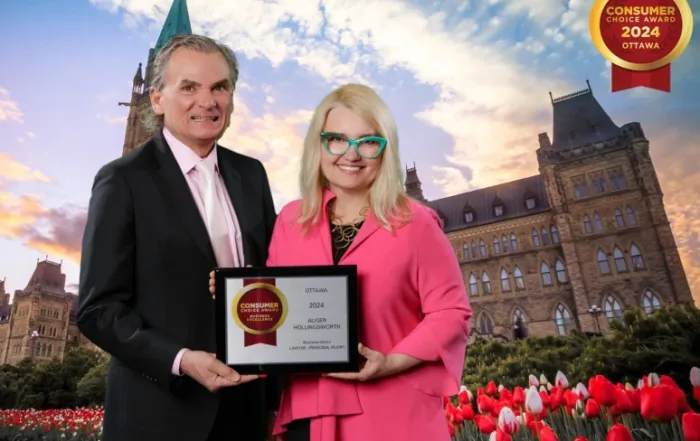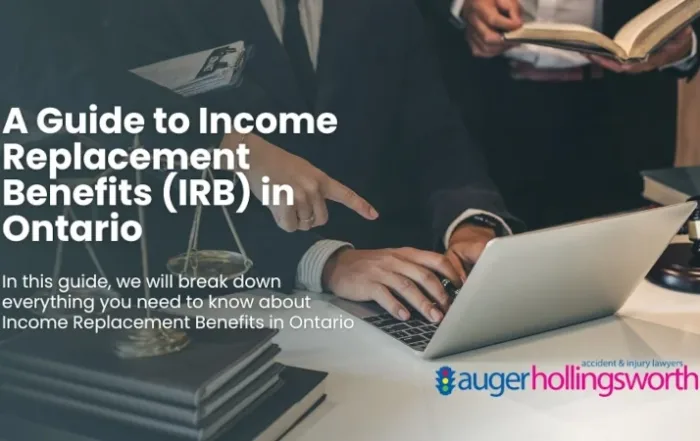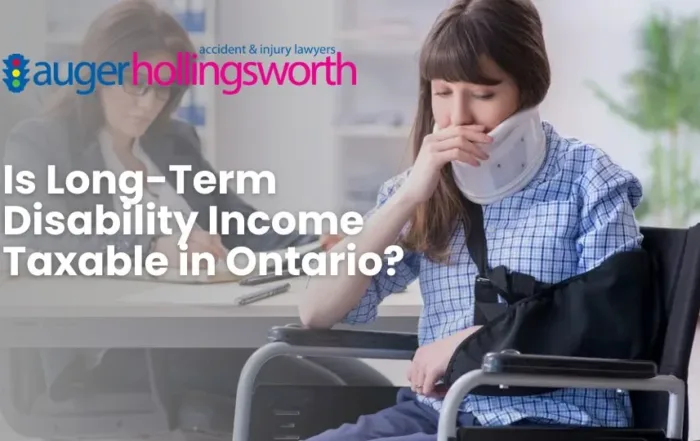Ontario Accident Lawyer: Post-Traumatic Stress Disorder – An Overview
Post-traumatic stress disorder (PTSD) is an anxiety disorder that can develop after exposure to one or two terrifying events that threatened or caused grave physical harm.
Background
An Egyptian physician in 1900 BCE was the earliest to deal with some aspects of hysterical reactions to trauma. Much later, Sigmund Freud’s pupil, Kardiner was the first to describe in detail the symptoms of post-traumatic stress disorder. Nevertheless, in psychiatric classification of diseases, PTSD is a relatively recent diagnosis. This disorder first appeared in the Diagnostic and Statistical Manual of Mental Disorders in 1980.
In the United States approximately 9% of accident victims develop significant post-traumatic stress disorders. Canadians are likely no different.
Trauma Related Risk Factors
Psychological trauma is the chief cause of PTSD. Some of the traumatic events that can cause PTSD include:
•Combat during war
•Natural disasters like earthquakes, fire, and floods
•Sexual Assault
•Physical assault
•Accidents (car accidents, train accidents etc.)
Diagnosis
The criteria for diagnosing post-traumatic stress disorder can be summarized as follows:
•Exposure to a traumatic event
•Persistent avoidance of stimuli associated with trauma
•Extended symptoms of stimuli beyond one month
•Significant impairment in social, occupational, or other important areas of functioning
Coping With PTSD
Symptoms of this disorder are long standing, so it is quite a challenge for the victims to cope with the stress. Recovery is gradual. A survivor of a gruesome car accident may have repeated visions of the gory incident. In addition, if the survivor was witness to fatalities, the mental trauma can be very harsh.
Positive coping actions should aim to reduce anxiety and help the victim regain self-esteem and confidence.
Here are some ways that can assist recovery:
•Talking to another person for support – Confiding in the right person is a good way to release inner turmoil, especially if the support person has empathy.
•Consulting the doctor – Regular visits to the doctor will aid in monitoring the health of the survivor.
•Practicing relaxation methods – All said and done, spirituality and meditation definitely helps. So does prayer, yoga, and listening to music.
•Taking part in recreational activities – To be involved in a hobby of one’s choice is an excellent way to divert oneself from memories of the trauma.
Change in Lifestyle
A concerted paradigm change in lifestyle can go a long way in the management of post-traumatic stress disorder.
Medications, Therapy, Support
More serious cases may require the use of antidepressants and anxiety-reducing medications. These medications can ease the symptoms of depression and sleep problems. Psychotherapy and cognitive- behavioral therapy are also an integral part of treatment. Being exposed to a reminder of the trauma as part of therapy—such as returning to the scene of an incident – sometimes helps. And, support from family and friends can help speed recovery.
A Real Injury — With Real Compensation and Benefits
Post-traumatic stress disorder (PTSD) is a real injury that in many cases can result in compensation for the victim. If you have been diagnosed with post-traumatic stress disorder, consider consulting an experienced personal injury lawyer to see if you there are benefits available to support treatment or recourse to damages for your suffering.
To speak to an Ottawa personal injury lawyer call Auger Hollingsworth at 613-233-4529, or email us at [email protected].














